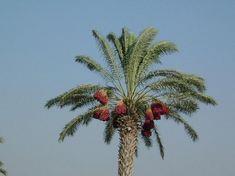
For many shoppers, dates are only really noticed around Christmas, placed next to bags of walnuts. Yet they play an important role during Ramadan, the Muslim holy festival.
This weekend, the UK’s Muslim community will break the first day of their fast with the consumption of three dates before eating a full meal.
Harry Dulai, the World Foods Association’s chairman, says anyone connected with the food business should be aware of the opportunity Ramadan presents. “Ramadan is a busy period for the Muslim community and buying habits completely change according to their dietary needs and requirements for opening and closing their fast,” he explains. “There is a strong shift towards foods that have slow release to see them through the fast and more festive foods to celebrate Eid. For breaking the fast, sales of products like dates and mangoes increase.”
According to the Office for National Statistics there are around 1.8 million Muslims living in the UK. Ramadan is one of the most important events in the Islamic world, and it is the one most connected with food.
Families stock up on extra provisions prior to the commencement of the festival, which lasts for 30 days and nights, and fruit is particularly high on the shopping list as it is easy to digest after a day of fasting.
“You will see pallets and pallets of fruit, especially Pakistani mangoes, flying out of this market just before Ramadan,” says Simon Kershaw, managing director of Bradford Market-based Burbank Produce.
“Melons are also in great demand and the market does see an increase in trade.”
“Business goes up something like 100 per cent,” adds Bradford Market worker Nawaz Rab. “Local food stores are buying in extra as everyone is increasing their food shopping.”
At New Spitalfields Market in east London traders also report an increase in business.
Director of wholesalers Arthur Hutchinson, Chris Hutchinson, says the market is always busy but they do notice an uplift around the time of religious holidays, especially Ramadan.
Although there are no UK-specific figures as to how much business Ramadan generates for the food industry, Nestlé claims that Halal (Islamic food) is worth £432bn globally. That’s some 16 per cent of the world food market.
New brands and specialist marketing agencies are also being launched to meet the needs of the Muslim consumer. Mohamed El-Fatatry, founder of integrated marketing agency Muxlim, says the Muslim consumer is predicted to account for 30 per cent of the world’s population by 2025.
The American food industry in particular has grasped the opportunity with companies developing Halal brands, such as the Saffron Road ready meals. These are the brainchild of San Francisco-based American Halal Company, which in preparation for Ramadan increased its lines and expanded its retail distribution.
“We believe Ramadan is an especially relevant time for brands and major retailers,” says Adnan Durrani, CEO of American Halal Company. “Major marketing research firms like Ogilvy and Gallop have now confirmed that American Muslims have over 70 per cent brand loyalty, and retailers and consumer brands can easily boost that to 95 per cent during Ramadan by even the smallest gesture of compassion.”
With such a loyal customer base ready to spend money, maybe next year we will see boxes of dates appearing more prominently on store shelves during summer. -